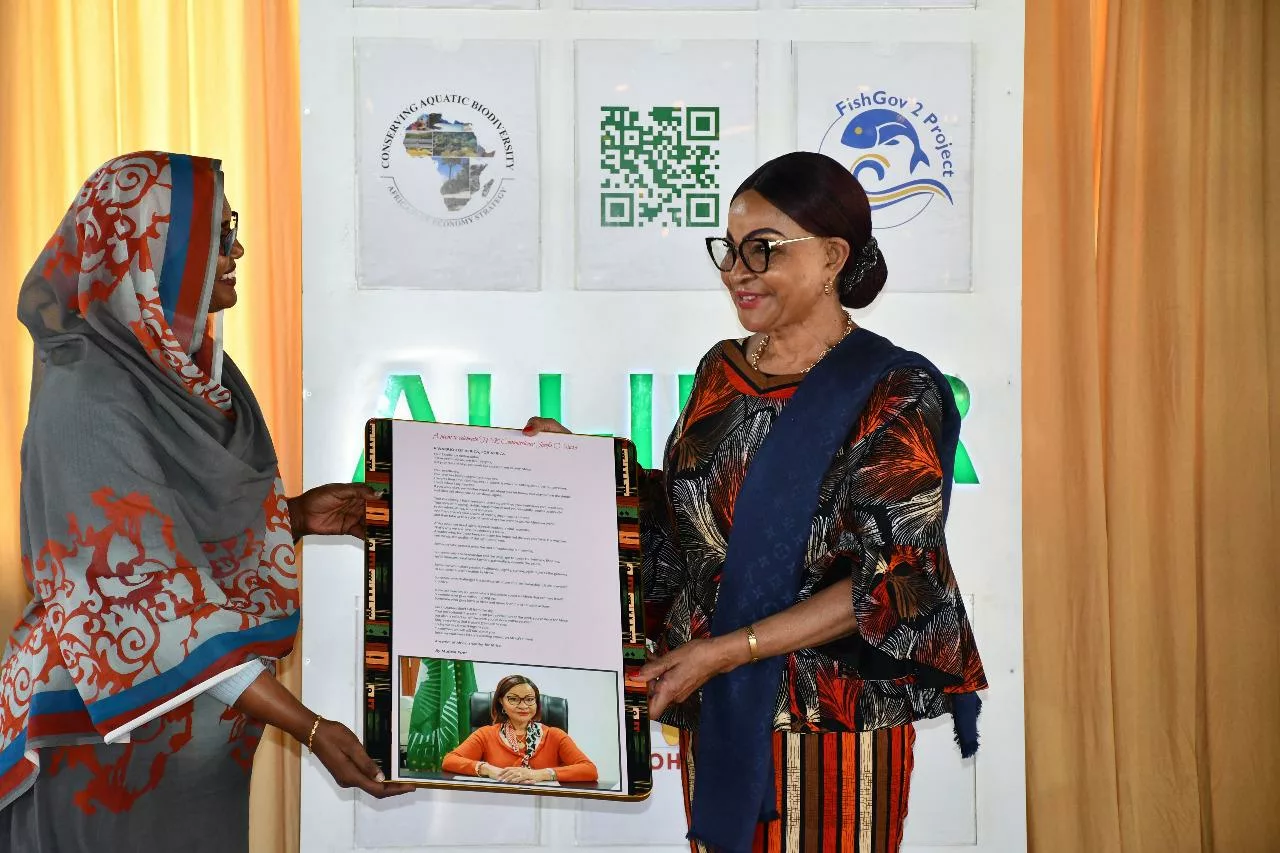|
Getting your Trinity Audio player ready...
|
Addis Ababa – The outgoing African Union Commissioner for Agriculture, Rural Development, Blue Economy and Sustainable Environment, Josefa Correia Sacko, was honoured in Nairobi by the Inter-African Bureau of Animal Resources (AU-IBAR) for her work on the continent.
The farewell event, organised by the specialised technical office, came at a time when the Angolan diplomat was ending her eight-year term on the African Union Commission (AUC). She was succeeded by Moses Vilakati, the former Minister of Agriculture, Tourism and the Environment of the Kingdom of Eswatini, who was elected during the 38th Summit of Heads of State and Government.
In an emotionally charged atmosphere, Josefa Sacko emphasised that it is with ‘a deep sense of gratitude and reflection’ and of a duty fulfilled, because hard work and dedication, full of challenges, achievements and some invaluable lessons, have left their mark on her consulate.
“These last eight years have been an incredible journey, full of challenges, achievements and some invaluable lessons. Despite considerable challenges, such as staff shortages and inadequate funding, we have recorded some monumental achievements,” she said.
In this regard, she highlighted the achievements of the inaugural African climate summit held here in Nairobi, the fertiliser and soil health summit, the recent Kampala declaration of the Comprehensive Africa Agriculture Development Programme (CAADP) and its 10-year action plan that will serve as a guiding framework for the ongoing transformation of agri-food systems, ensuring a prosperous and food-secure future.
“Even our Heads of State and Government, and particularly the previous President of the Union, the President of the Islamic Republic of Mauritania, recognised these events at their last summit. None of this would have been possible without the unwavering commitment, dedication and professionalism of the excellent team that has supported me throughout this mandate,” she said.
Josefa Sacko stressed that the Inter-African Bureau of Animal Resources (AU-IBAR), a specialised technical structure of the African Union Commission (AUC) created in 1951 to lead the development of animal resources, including livestock, fisheries and wildlife, across the continent had achieved the ‘gigantic feat’ of eradicating rinderpest in Africa.
“It is no exaggeration that AU-IBAR has more resources than ARBE, which is a mark of its relevance to Africa. It is a source of pride. This office enjoys respect and great patronage from global institutions such as the World Organisation for Animal Health, the European Union and the Food and Agriculture Organisation of the United Nations,” she said.
She also noted that AU-IBAR has supported the harmonisation of animal genetic profiling, monitoring and inventory through digital data collection tools and a reporting system and developed the AU’s Blue Economy Strategy in response to the 2018 Nairobi conference’s call for a framework for the continent, focusing on the sustainable use of Africa’s vast aquatic resources.
The strategy, which was launched by the AUC in 2021 at a major side event during the Summit, outlines key areas such as fisheries, maritime security, tourism and sustainable energy.
She stressed that the innovative initiatives, including the selection of centres of excellence for fisheries and aquaculture in Africa, the launch of the Programme for the Control and Eradication of Ruminant Pest and Diseases (PPR) by 2030, in accordance with the global strategy of the Member States and partners of the African Union on 3 February 2025 in Addis Ababa, Ethiopia, had added to the solid foundation that had been laid for the collective mission.






